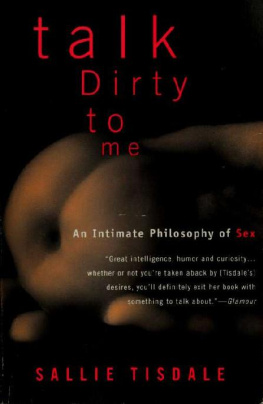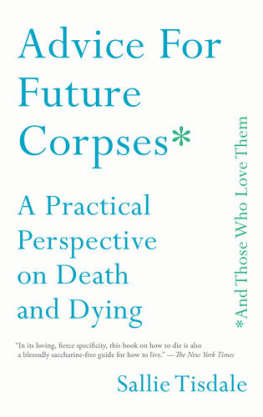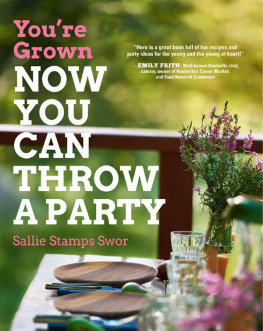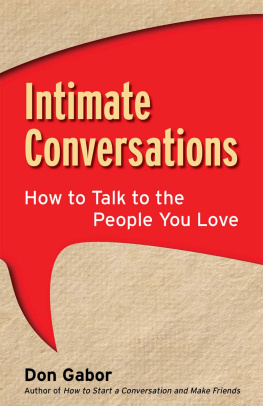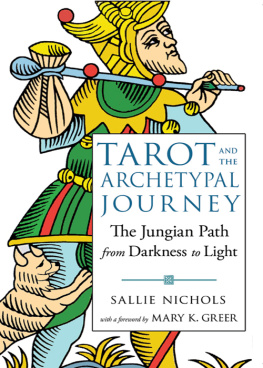This book made available by the Internet Archive.
To the nasty girls who are leading the way: Susie Sexpert, Carol Queen ; Mistress Marlayna, Laura the Girl Sloth, Lily Braindrop ; Lisa LaBia ; and the rest
Acknowledgments
I cannot name all the people who spoke with me, sent me stories and articles, and made confessions to me in the course of writing this book. Most of them are glad I can't, I'm sure. You know who you are; I appreciate everything you shared.
Steve Tyler, Karen Karbo, Megan McMorran, Barry Johnson, Larry Cusack, and Larry Downard read this manuscript in draft form and gave support when it was most needed; they were good friends to have during a long winter. I want to thank Jeanne and Don for long conversations, lots of help, and many interesting nights; and Brian, for great letters and comradeship.
I also owe thanks to the unflappable staff of the British Library, and to Linda Gibson, Niki Adams, Veronica Vera, Priscilla Alexander, Leanne Katz, Ann Har-roun, and Tim Waterman. Thanks for enthusiastic support to David Gernert and Amy Williams. Kim Witherspoon is my agent extraordinaire; I'm glad she's on my side. And Bob, so many thanks.
This book was spanked into shape by Channa Taub, editor dominatrix.
I was influenced to my own surprise, and in surprising ways, by the written work of Norman O. Brown and William Irwin Thompson. I have also relied over the years on a large body of work created by several feminist scholars, including Carole Vance, Ellen Willis, Ann Snitow, Lisa Duggan, Paula Webster, and Kate Ellis. Both as a writer and a neurotic, I appreciate the depth of humor and clarity of thought in new writing by Leslie Feinberg, Trish Thomas, Cris Gutierrez, Sunah Cherwin, Lani Kaahumanu, and many others. I feel grateful in several ways to the staff of Good Vibrations, a resource beyond measure.
I am especially grateful to Harper's for publishing an early essay by the same name in which I explored many of these ideas, for giving me room in which to find this voice, and for continuing to be the most reliably intelligent magazine in the country.
Lastly, I give thanks to Kyogen Carlson for his steady, guiding light.
April, 1994
"and we rose up like wheat, acre after acre of gold and we harvested, we harvested. ;;
Anne Sexton

Desire
We talk about sex all the time, we moderns. We see sex all the timeraw, explicit images everywhere we look. There is "sex" in the media and "sex" in our culture; we argue over "sex education" and discuss our "sexual disorders." But "sex" always seemed less concrete than this to me, more disobedient. Sex troubled metroubled me in proportion to how much I tried over the years to separate sex from the rest of my life, to manage and define it, to speak of sex as something that began, ended, lived separately from me. Sex demanded my close atten
tion even when I would have preferred to attend to almost anything else.
Devilish reminders crop up all the time. The planet itself is laden with sex. marbled with my physical and psvchic responses to its parts, made out of my relationship with its skin. How we are rooted to the earth through our bodies determines how we see other bodies, and ultimately the earth itself. This seems obvious, and yet we don't call this sex. To do so makes sex awfully big, but big is exactly what sex is. Freud was never more right than when he called the human animal "polymorphously perverse." To the unschooled body there are no good or bad sexual objects, no right or wrong responses. (Even the schooled body gets confused.) Sexual acts are one of the primary means by which we can act out our inarticulated inner lives.
The Latin root for pudenda, our genitals, means "to be ashamed." We are twisted between this and the body's blessed pleasures, living among a proliferation of sexual images even as we live in shame. The sex that is presented to us in everyday culture feels strange to me; its images are fragments, lifeless, removed from normal experience. Real sex. the sex in our cells and in the space between our neurons, leaks out and gets into things and stains our vision and colors our lives. This is what we can't see. This is what we never say.
The question is transparent: Why are we so unhappy about our own sexual acts and the acts of others 1
There is a school of thoughttwo schools, in fact
that holds sex to be simply dangerous. The cosmic school, which includes a fair amount of our religious instruction, sees sex as a natural force that must be allowed to exist only within certain absolute bounds. A related philosophy holds that sex as we know it is politically and socially unpalatable. This is most publicly presented by the conservative feminist dictum that in a sexist culture, sex hurts women and no woman lives a sexually free life until the culture itself is uprooted. These beliefs have seeds of truth in them, as does the idealess a belief than a feelingthat sex is too intimate for public discourse. A different standard is applied to sex this way, a standard that removes it from any context but its most immediate one.
Each of us finds sexual censure in our individual lives, of one kind or another. As for myself, I've been struck (shamed) by highhandednessthe faintly damning gentility of the auteurs. Sex in this view lacks aesthetic; it's seen as a rather low pursuitfun, but not exactly Ivy League. Sex invokes a kind of hindbrain howling in most people now and then, and because of thisin spite of this, perhapsthe auteur says humans should rise above their baser natures. People must seek the refined and the complex and intellectual in the world, should create, beautify, compose. Presumably art would be considered a more complex, symbolic, and layered act. But good sex is a symphony of experiences infinitely complicated with meaning, rich and unpredictable, as capable of disturbing and illuminating the individual as any for
mal work of art, as memorable, as fleeting. The real point being made is that sex is low because it's universal. After all, any chimp can fling paint.
Virtually all serious conversation about sex is sooner or later dismissed as trivialas being too small. In the grand scheme of things sex is nothing beside the more publicly applauded accomplishments. Sex is the ultimate ephemera, a phantom. But our culturewide aversion makes sex more, not less, real. Refusing to look at an illusion gives an illusion body and strength, gives it power. If you want to make a mirage go away, walk toward it. If you turn and run, the lake gets bigger and the palm trees more inviting every time you look back. Sex is, truly, not important that is, something we can cease worrying aboutonly to the extent that we look at sex and see it for what it really is, and nothing more.
Sex is as important, in much the same way and to about the same degree, as what we eat and how we sleep. Sex is important because it is central to being human, because it intersects everything else, because it is the physical realm's metaphor for the chaos and texture of our spiritual and psychological lives. Sex is a kind of intuitive art in itself, an art made largely by the human body on levels our frontal cortex can only partly imagine. Sex, in the end, doesn't matter as much as how we treat each otherhow much respect and care we accord each other, ourselves, our place, and whatever we call God. What fascinates me most about sex is how many ways weand Ihave used the fear of sex to justify disre
Next page
